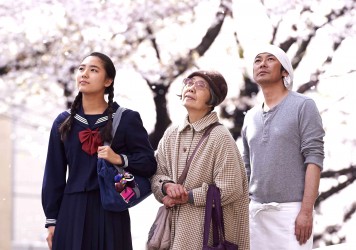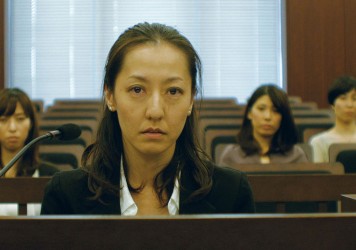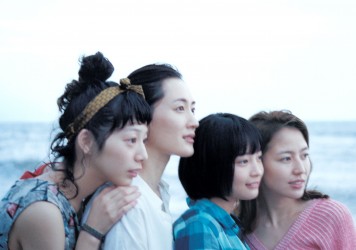This Japanese teen love story from Naomi Kawase is mired in emo histrionics and limp drama.
Which ever way you slice it, Naomi Kawase’s maligned 2014 Cannes competition contender, Still the Water, is misty-eyed, tin-eared, pompous tommyrot. It strains hard to present itself as an rhapsodic, elemental teen love story set against a natural backdrop of the glowing moon, the crashing waves and the shimmering branches. But the final product comes across as crushingly self-conscious, all cute, boil-in-the-bag visual metaphors bemoaning the unpredictability of life and love, and dialogue which comprises of cheap, faux-poetic philosophising. Some may see it as deathly slow, others chronically unfocused, as its lead protagonists, a pair of chronically shy high-schoolers feeling the initial pangs of sexuality, lope about a weatherbeaten terrain of a small seaside town doing nothing much of interest.
It’s main problem is that Kawase has built a film around two slightly wayward teenage characters, both of whom come across as entirely false, constructs of a theory-driven artist and not someone intent on capturing reality. There’s an inherent belief that people of that age are navigated entirely by naivety and they wait patiently for the adults in their lives – however fractured – to instruct them the ethical and emotional codes by which they should live. It just never rings true.
Kawase’s thesis asks, what’s the point in love when mortality constantly threatens to rip that ephemeral joy from us at a moment’s notice. An enemy of subtly, the director first poses this question in the film’s opening sequence, when a cuddly gentleman with a fluffy white beard and ceremonial head-dress (there, possibly, to placate any suggestion of non-ritual barbarism), runs his shaving razor across the jugular of a goat dangling from a branch. The gory particulars have been cut for the UK release. But as a way of introducing a theme, it’s tough to think of a less eloquent strategy.
The story fleshes out the woes of these two teens on the cusp of adulthood, but does so in a way which feels rushed and obvious. There are reticent beach-side conversations about sex, cliched heart-to-hearts with estranged parents, a period of ultra sentimental truth-telling with a dying mother, and, to cap it all off, a big ol’ storm. Whenever lost for something to say, Kawase edits in some shots of crashing waves or a calm beach, whichever natural phenomena happens to shore up the current mood. Its purportedly transcendent finale, too, is unearned.
Published 3 Jul 2015
Did not go down a storm at the Cannes Film Festival in 2014.
It’s like someone’s hurried replica of what a poetic art film should be.
There are a few moments in there which save it from complete disaster.

Generations collide in this eccentric cookery-themed comedy drama from Japanese director Naomi Kawase.

Don’t fear the run-time: Ryûsuke Hamaguchi’s giant saga is a movie for the binge-watching generation.

Japanese director Hirokazu Koreeda returns with a sensitive and quietly sublime sibling drama.